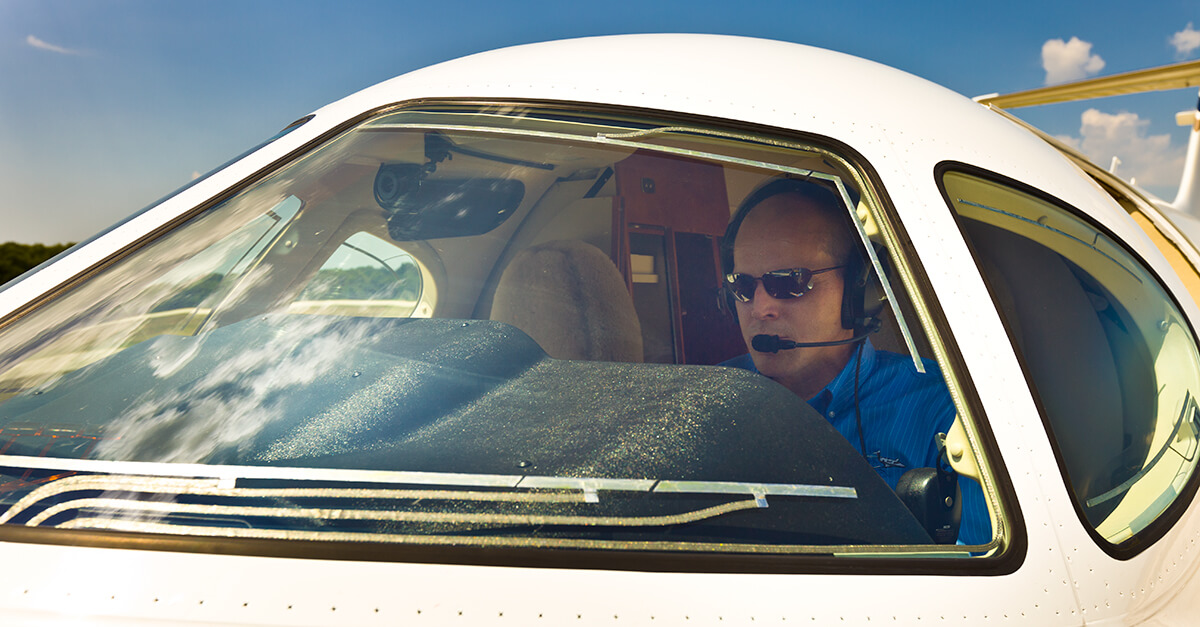
Sept. 21, 2022
In the wake of several high-profile incidents involving aviation, expert panelists on a Sept. 21 NBAA News Hour webinar urged policymakers and industry leaders to make mental health a higher priority.
“The diagnosis of certain mental health disorders does not mean the end of your career,” as a pilot, said Marty Smith, co-founder and CEO of Presage Group Inc. “We need to do, as an industry, a better job on the education.
“As we would take a timeout for someone with cancer treatment – let’s treat these diseases as diseases,” added Smith. “We have an entire mental health infrastructure.”
Penny Levin, founder and owner of AeroPsych, said that 40% of Americans say they’re experiencing increased mental distress since the COVID-19 pandemic began, and pilots are not immune from that.
“We really can’t separate our physical and mental health,” she said, adding that mental health “impacts everything: it impacts our relationships, our work.”
Earlier this month, an employee at the airport in Tupelo, MS., stole a plane and threatened to crash into a Walmart. With help, he was able to land it in a field, and nobody was injured.
One of the panel’s moderators, Mark Larsen, CAM, NBAA director of safety and flight operations, referenced that incident and other recent events to underscore the need for awareness of mental health issues.
“Such actions don’t happen every day in aviation, but many individuals in our industry are affected by underlying mental health issues, including struggles with depression, anxiety, adjustment disorders, performance challenges, substance dependence and others,” he said.
“I’ve received many phone calls and emails over the past year from NBAA members concerned about this issue, and we’re working with other organizations, and with the FAA, to better address mental health in aviation,” Larsen added. “These issues can be critical to aviation safety, so proactively addressing mental health as part of a comprehensive fitness review approach is appropriate, and the NBAA safety committee has long considered mental health as an important part, including physical health and fatigue, to ensure fitness for duty.”
Matt McNeil, president and clinical director of LiftAffect, said mental health issues go beyond “these extreme outlier events. To me what it highlights is that, well, look, pilots are people too. We don’t have capes and an ‘S’ on our chest. And in fact, if you look at the data, we have a greater propensity of mental health issues because of circadian disruptions and because of a very stigmatized view of mental health.
“There are regulatory issues that are creating and exacerbating this perception that you have to have greater resilience and you have to be a Superman to be a pilot,” he added. “It’s not true.”
The “stigma of being seen or labeled as weak or unstable” is a barrier to pilots getting mental health treatment, McNeil said. Other barriers include loss of income or career, insurance limitations and damage to professional reputation.
He said younger people are more open to seeking out help.
“Generationally, Millennials and Gen Z, they’re much more apt to reach out, because they’ve grown up with counselors and therapists,” McNeil said. “It’s much more normalized. With Gen Xers like myself: pretty apprehensive. You couldn’t say pilot and mental health in the same sentence 20 years ago. The Baby Boomers: forget it. They’re not going to reach out until they are literally bleeding out on the side of the road.”
Webinar co-moderator, Jo Damato, CAM, NBAA’s senior vice president of education, training and workforce development, said today’s leaders will shape the next generation of leaders.
“And that is going to keep the aviation industry strong, but also business aviation,” she said. “So thanks to all of you for recognizing why this is important for generations going forward, but also to anybody here today attending who’s a leader, and is trying to figure out how to lead in this space.”


 International Business Aviation Council Ltd.
International Business Aviation Council Ltd.